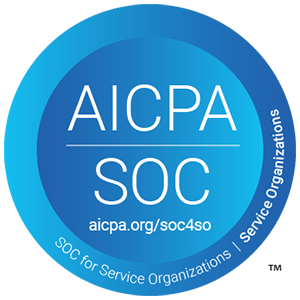
In care management, getting a clear picture of each patient’s needs is crucial—and that’s where effective screenings and assessments come in. Information gathered from screenings and assessments plays a vital role in identifying the unique needs of each patient and informing the care planning process.
The Sevida care management application not only integrates these evaluation tools, but goes a step further by enabling the automatic generation of actionable insights based on how a question is answered. Care managers can spend less time manually sorting through pages of assessments and more time focusing on developing the patient’s care plan.
Let’s first dive into the importance of screenings and assessments in care management, and then explore how Sevida’s platform optimizes these information-gathering tools.
Defining Screenings & Assessments
A screening is typically a brief, structured tool used to identify potential health conditions or concerns that require further evaluation. Screenings help care managers quickly assess a patient’s risk level for specific issues and prioritize interventions. Upcoming Sevida functionality will trend screening scores over time to monitor patient progress. This ensures the associated interventions are making a positive improvement.
Screening Examples:
- PHQ-9 (Patient Health Questionnaire-9) is a widely used screening tool for identifying depression. This diagnostic tool helps care managers assess the severity of depressive symptoms, allowing them to direct patients to appropriate mental health support.
- ACES (Adverse Childhood Experiences) is designed to assess the impact of childhood trauma on an individual’s health. It’s a critical tool to understand how past experiences may affect a patient’s current health, mental state, and behavior.
- LOCUS (Level of Care Utilization System) determines the appropriate level of care needed for individuals with mental health or substance use concerns. It helps clinicians assess whether a patient needs outpatient, intensive outpatient, or inpatient care, guiding treatment plans.
An assessment is a more detailed evaluation that gathers comprehensive information about a patient’s health, lifestyle, and socio-economic factors. While screenings identify potential issues, assessments provide a deeper dive into a patient’s health profile and can integrate screening questions for a more holistic view.
A great example of an assessment tool is the Care Management Comprehensive Assessment (CMCA) in Sevida. This assessment contains hundreds of questions, and gathers a wide range of demographic and health-related information.
Making the Screening and Assessment Process Smarter with Sevida
Traditional care management systems may rely on fragmented screening and assessment processes that require manual data entry, and involve siloed forms that lack integration. For example, care managers may need to input screening results from multiple sources—such as uploading paper-based screenings and health questionnaires into the system. This can lead to inconsistencies in data recording and interpretation, making it difficult to get a clear, cohesive view of a patient’s needs.
Another key challenge is the lack of customization. When care management applications lack customizable form building tools, care managers are forced to rely on generic assessments that may not align with the specific needs of their patient population.
Sevida revolutionizes this process by incorporating an advanced form-building platform, which utilizes rules and algorithms to create assessments that trigger actionable insights. These insights help identify each patient’s unique, unmet needs, which can easily be added to a care plan. Sevida allows customers to request custom assessments to be built and designed specifically for their population, ensuring the tools are relevant and effective.
With Sevida, care managers benefit from a user-friendly interface that organizes and streamlines data collection. They are empowered to deliver more personalized, effective care, ensuring that all patient needs—whether physical, emotional, or social—are addressed in a timely and organized manner. It’s easy to monitor patient progress over time and adjust care plans accordingly.
We are committed to enhancing the daily lives of care managers, ultimately benefiting the many individuals they serve. This approach is essential for maximizing outreach amid staff shortages and preventing care manager burnout.
How Information from Assessments Informs Care Plans
In Sevida, the comprehensive data gathered from an assessment directly informs the creation of personalized care plans. Within the care plan, care managers can easily track each patient’s progress and adjust needs, goals, and interventions to ensure the best possible outcomes.
For example, a care management comprehensive assessment can be built to automatically identify member needs based on how certain questions are answered. If a patient reports that they are homeless, for example, Sevida can automatically flag this as a need for housing. This ensures that a housing need is added to the care plan. The care manager has a clear reference of all patient needs gathered from the assessment when building the care plan.
Sevida can also track a patient’s strengths and barriers based on assessment answers. If a patient has a strong support system but struggles with chronic conditions, the care manager can integrate this information into the care plan, and take steps to leverage that support while also addressing the health challenges. Additionally, Sevida can identify referral providers to support the patient’s need—a topic we can explore further another day.
Conclusion
Sevida is designed to empower care managers to perform at their best while maintaining the highest quality of care. Screenings and assessments are crucial tools in the care management process. Sevida’s advanced platform ensures that organizations can offer tailored, data-driven insights to enhance the care planning process. By leveraging these powerful tools, care managers can easily identify patient needs, track their progress, and create comprehensive care plans that drive meaningful outcomes.

